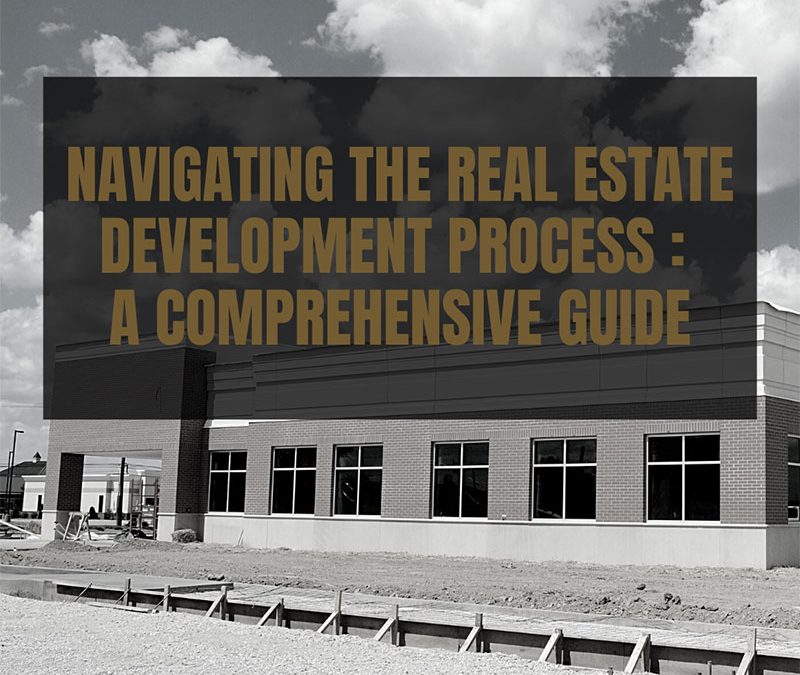Real estate development is a multifaceted and intricate journey that transforms raw land or existing properties into lucrative assets. It involves a series of well-defined steps, a keen understanding of market dynamics, and effective project management. In this comprehensive guide, we’ll explore the essential real estate development steps, provide insights into the property development timeline, and offer valuable project management tips.
Real Estate Development Steps
- Market Research: The journey begins with thorough market research. Identifying trends, demands, and opportunities is essential for a successful project. This step allows developers to pinpoint viable locations and niches within the market.
- Site Selection and Acquisition: After identifying a promising location, the next step is to acquire the property. Negotiations, due diligence, and legal procedures play a pivotal role in securing the right land or property.
- Feasibility Analysis: Developers must conduct a detailed feasibility analysis. This involves evaluating construction costs, potential returns, and potential challenges. The analysis informs project viability and helps secure financing.
- Design and Planning: Once the project is deemed feasible, the design and planning phase begins. Architects and engineers collaborate to create blueprints, while planners navigate the regulatory requirements and zoning laws.
- Financing: Securing the necessary capital is a critical aspect of real estate development. Developers can use various sources, including bank loans, investors, and partnerships to fund the project.
- Permitting and Approvals: Navigating the bureaucratic maze of permits and approvals can be time-consuming, but it’s a crucial step. Compliance with local regulations is essential to prevent costly delays. Community engagement is a key component to gaining the required permits and approvals.
- Construction: The actual construction phase is where the project takes shape. Effective project management is essential here to ensure the project stays on schedule and within budget. Quality control, safety, and cost management are paramount.
- Marketing and Sales: As the project nears completion, marketing efforts begin. Effective marketing strategies are essential to attract buyers or tenants and ensure a smooth transition into the operational phase.
- Operational Phase: This phase involves handing over the completed project to buyers or tenants and managing any ongoing operational aspects. Developers may choose to retain ownership or sell the property for a profit.
Property Development Timeline
The property development timeline can vary significantly depending on the project’s size and complexity. However, a rough estimate might include:
- Market research: 1-3 months
- Site selection and acquisition: 3-6 months
- Feasibility analysis: 1-2 months
- Design and planning: 6-12 months
- Financing: 2-6 months
- Permitting and approvals: 3-12 months
- Construction: 12-24 months
- Marketing and sales: 6-12 months
- Operational phase: Ongoing
Project Management Tips
- Effective Communication: Clear and consistent communication among all project stakeholders is crucial. Regular meetings and updates ensure that everyone is on the same page.
- Risk Management: Anticipate potential risks and have contingency plans in place. Delays and unexpected issues are common in real estate development.
- Budget Control: Keep a close eye on project costs and implement strict budget controls. Overruns can be detrimental to the project’s profitability.
- Quality Control: Ensure that construction and design meet high-quality standards. Subpar work can lead to long-term issues and reputational damage.
- Timeline Adherence: Strive to stick to the timeline as closely as possible. Delays can have a domino effect on the entire project.
Real estate development is a complex process that demands careful planning, in-depth knowledge, and effective management. By following these real estate development steps, understanding the property development timeline, and implementing project management best practices, Inventure Real Estate navigates this intricate journey with confidence and success.

John Uphoff is a seasoned Development Associate with a decade of invaluable experience in the field. With a Bachelor’s degree in Planning and Community Development from St. Cloud State University, he brings a comprehensive understanding of the intricate dynamics involved in real estate development.
Throughout his career, John has consistently demonstrated success in spearheading and overseeing projects from inception to completion.

